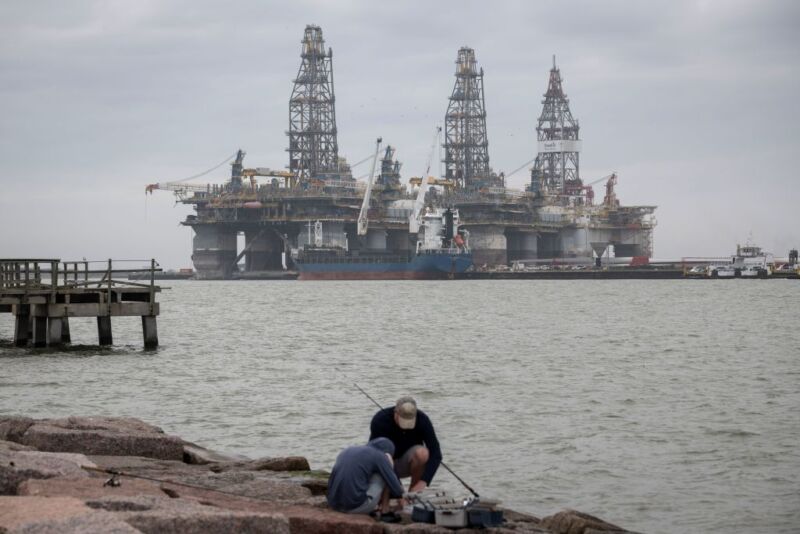
Enlarge / People fish in front of defunct oil drilling rigs in the Corpus Christi Ship Channel at Aransas Pass on March 11, 2019, in Port Aransas, Texas. (credit: Loren Elliot/AFP via Getty Images)
CORPUS CHRISTI, Texas—Five years ago, when ExxonMobil came calling, city officials eagerly signed over a large portion of their water supply so the oil giant could build a $10 billion plant to make plastics out of methane gas.
A year later, they did the same for Steel Dynamics to build a rolled-steel factory.
Never mind that Corpus Christi, a mid-sized city on the semi-arid South Texas coast, had just raced through its 50-year water plan 13 years ahead of schedule. Planners believed they had a solution: large-scale seawater desalination.
No comments:
Post a Comment